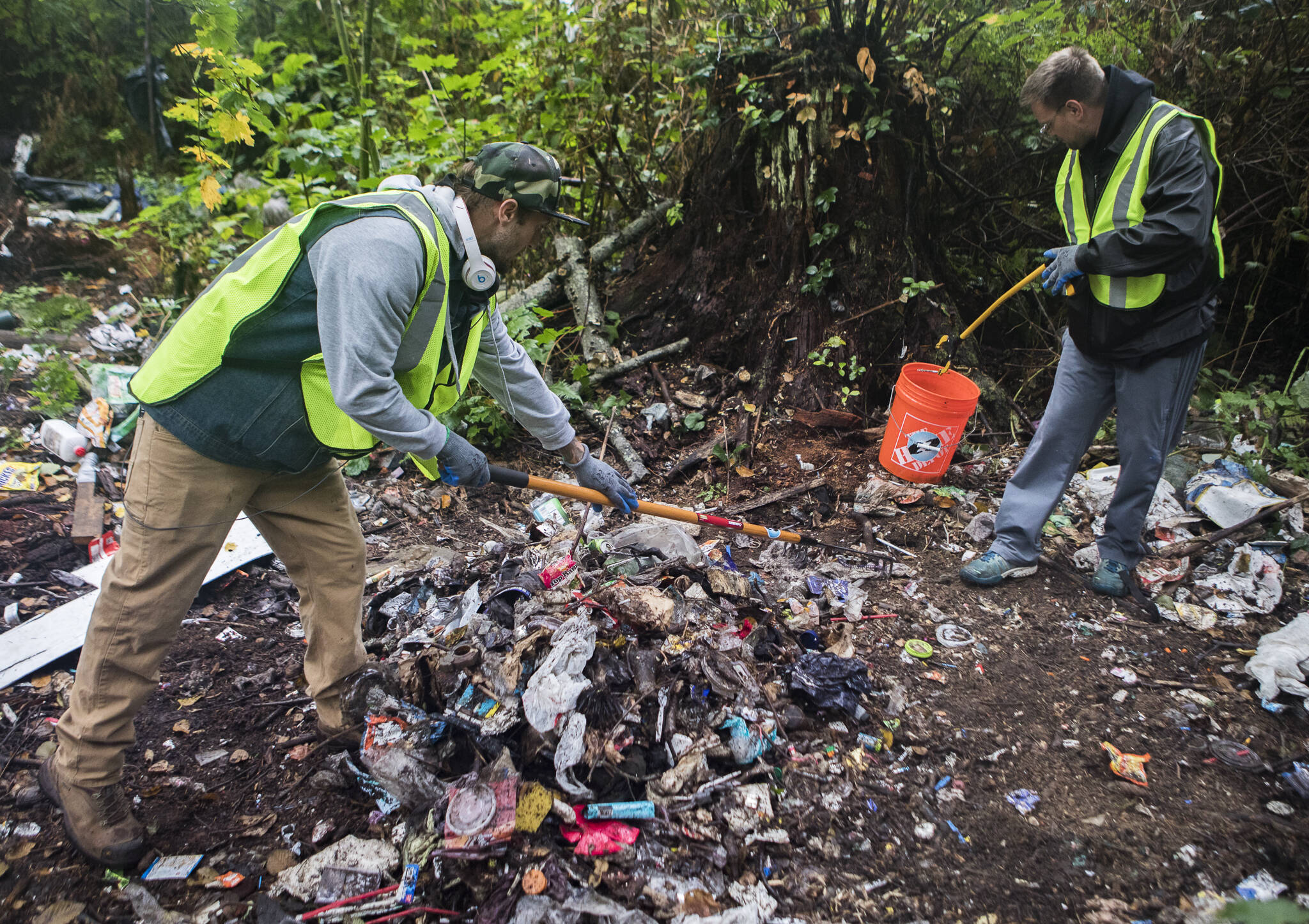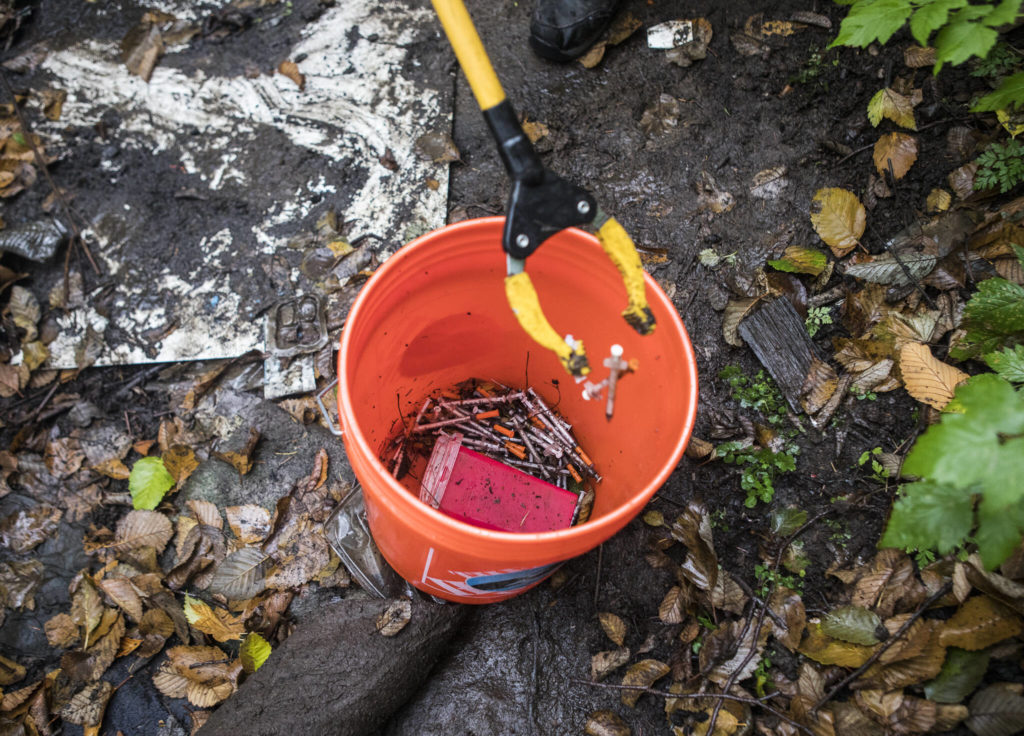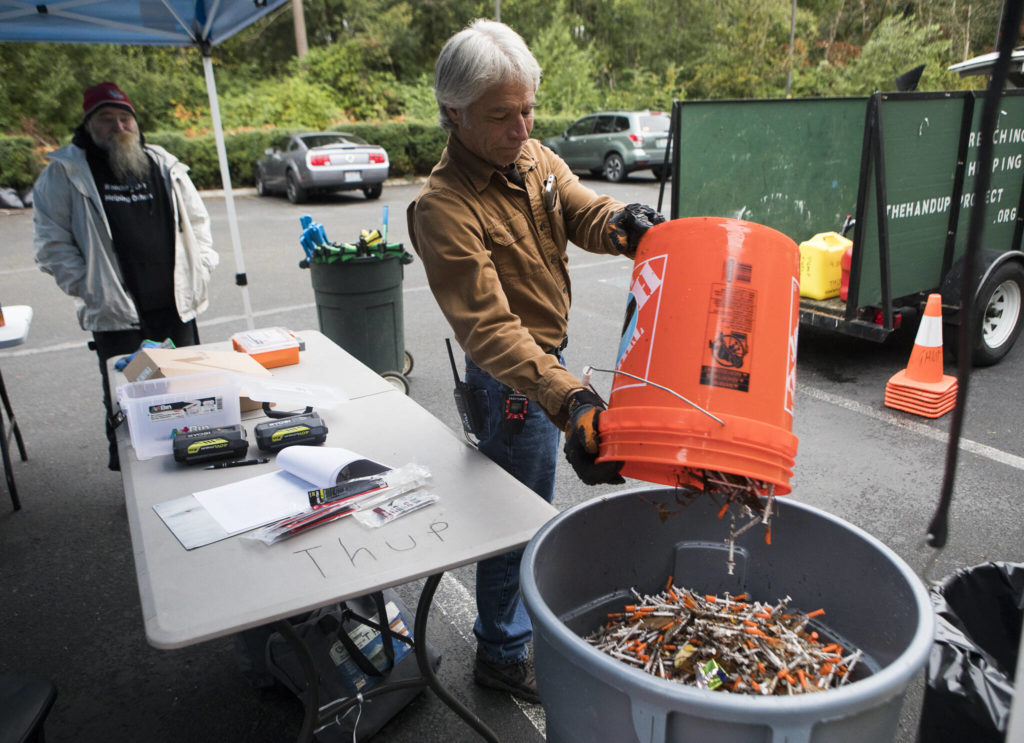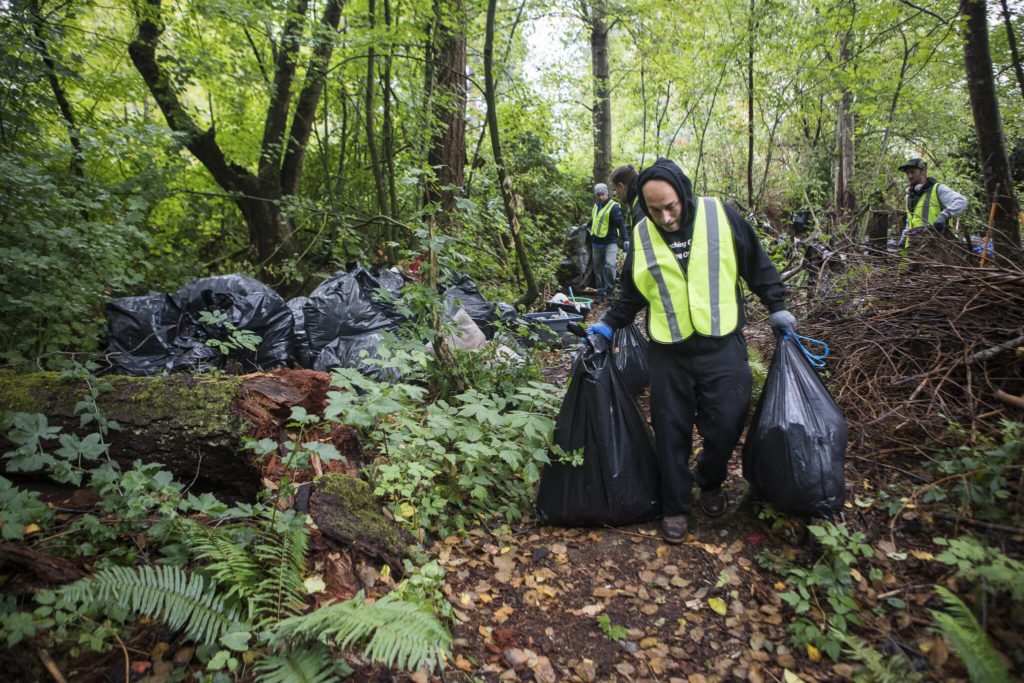EVERETT — Scanning the leaf-covered ground with a plastic trash picker, within a few minutes Stephen Nadera found a dozen needles scattered around a wooded area near apartments, a hospital and restaurants.
One by one, he dropped them into an orange bucket. Once full, someone would dump it into a larger garbage bin until they could be sorted into sharps containers and eventually properly disposed of at several sites over the coming weeks.
Nadera, a 23-year-old petty officer in the U.S. Navy, and fellow service members from the USS Chosin volunteered for the weekend cleanup. The Hand Up Project, a nonprofit that provides housing, outreach and recovery support for people living without stable shelter, coordinated the effort on the private property just east of I-5 between 128th Street SE and 130th Street SE.
“It’s really just a way to do more, especially on the weekends,” Nadera said.
Reynaldo McDonald Montero, 23, raked through the mix of bottles, clothing, leaves and wrappers that obscured needles. He had finished a 24-hour shift prior to spending Sunday scanning the forest floor.
“It’s a way to do something else than work,” he said.
They both said their time was well spent to better understand the challenges people with untreated mental health and substance use disorders can have.
Hand Up Project vice president Jim Phelps said two people living there, out of an estimated 30 to 50, accepted offers for recovery services during one of the largest cleanups the group has taken on.
“Is it worth all this manpower? Hell yes,” Phelps said. “That’s saving a life.”
The plot they were focused on this weekend was about 3 acres, another across the street is about 4 acres, according to county property records. Hand Up Project operations coordinator Tony Thompson visited the site every day for the prior two weeks to speak with people living there and give them a notice that the group was coming to clean up the trash and haul it away.
“With us, they’re gonna end up sober and that scares the hell out of them,” Hand Up Project founder Robert Smiley said.
Those people were asked to leave during the cleanup that yielded almost 100 full 42-gallon black bags of trash in just about eight hours of work.
“We don’t kick ‘em out,” Thompson said. “We’re not the property owners. We’re not the police.”
Within a month, the group plans to begin hauling out trash from there too.
“These are the hopeless people that everyone has given up on,” Phelps said.
The Hand Up Project’s goal is to support people they meet on the streets or living in encampments from when they are first contacted through their treatment, into stable housing and, ideally, into the workforce. If someone’s ready for detox or for a warm bed, they drive them to a facility that can take them, Phelps said.
Richard Amado, 42, knows that experience well. Not long ago he was among them and struggling with addiction. Today, he said he is 22 months sober and spent the weekend cleaning up the encampment where an estimated 30 to 50 people were living.
It was the 10th time he had helped at a cleanup like this, which is part of The Hand Up Project’s model. Eventually, when people are stabilized from whatever traumas they experienced, they’re expected to join the group’s outreach.
Smiley lived with addiction and in encampments until he got treatment years ago. He wants himself and others who have come through detox, mental health care and other services to be living examples of what’s possible.
Amado said his goal is to move on from that past life and hopes that people he used to see living on the margins of society see him living clean.
“That’s the plan, to live life on life’s terms instead of burying the pain and suffering,” he said. “It’s doable.”
The Hand Up Project has grown from its early outreach focus and now provides clean-and-sober housing as well as transitional housing support services. In a month, the group plans to launch a social worker emergency program as well that could divert those incidents out of emergency medical services, firefighter and law enforcement response.
“It’s not like they just chose this… they got here because the system failed,” Phelps said of their clients.
Needle exchange
The Snohomish County Syringe Exchange offers clean needles in exchange for a used one.
It operates at 1625 E Marine View Drive, Unit 4, Everett. The office phone number is 425-258-2977 and its email address is aidsoutreach@hotmail.com.
The Hand Up Project has a suite of resources to help people get treatment for addiction and mental health disorders. Learn more at https://thehandupproject.org/.
Ben Watanabe: bwatanabe@heraldnet.com; 425-339-3037; Twitter @benwatanabe.
Talk to us
> Give us your news tips.
> Send us a letter to the editor.
> More Herald contact information.






























